Peter Drysdale talks about half a century of research
Peter Drysdale
Peter Drysdale, Emeritus Professor at the Australian National University (ANU) is the founder of the Australia-Japan Research Centre, which was set up within ANU in 1980 with public- and private-sector cooperation from both Japan and Australia, and is a celebrated presence worldwide for his research on East Asia and Japanese economic policy. In particular, Drysdale's research focusing on economic cooperation in the Asia-Pacific region played a significant part in the founding of Asia-Pacific Economic Cooperation (APEC). Recently Drysdale received the 2014 Japan Foundation Award in recognition of his many years of contributing to the promotion of mutual understanding between Japan and Australia.
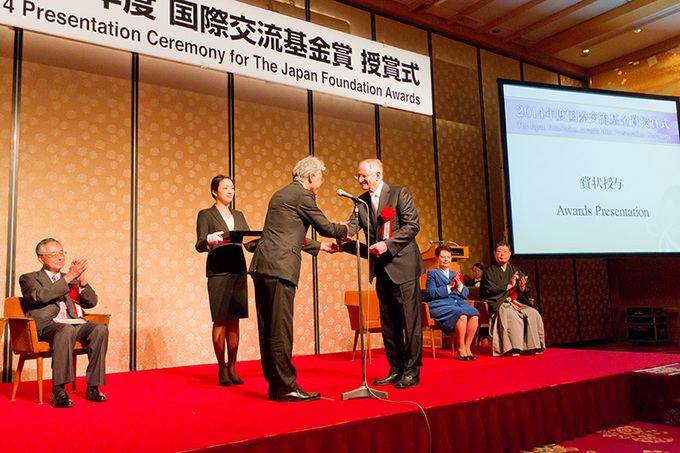

The 2014 presentation ceremony for The Japan Foundation Awards
Commenting on winning this award, Drysdale said, "The associations and the deep friendships that I formed then with all these people and many more, and with my student friends who have all become distinguished gentlemen, and through my work in Japan and around the Asia Pacific region over all these years have been a never-ending source of inspiration and encouragement. "
At the Commemorative Lecture held in Tokyo on October 10, Drysdale gave a talk lasting approximately 90 minutes on "The Future of Economic Cooperation in Asia?"
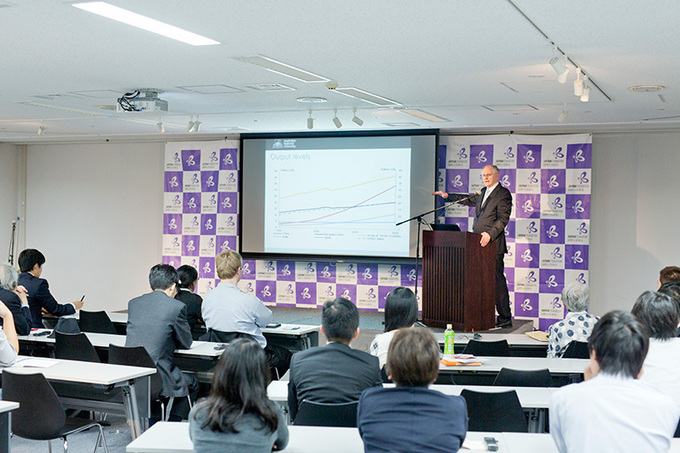
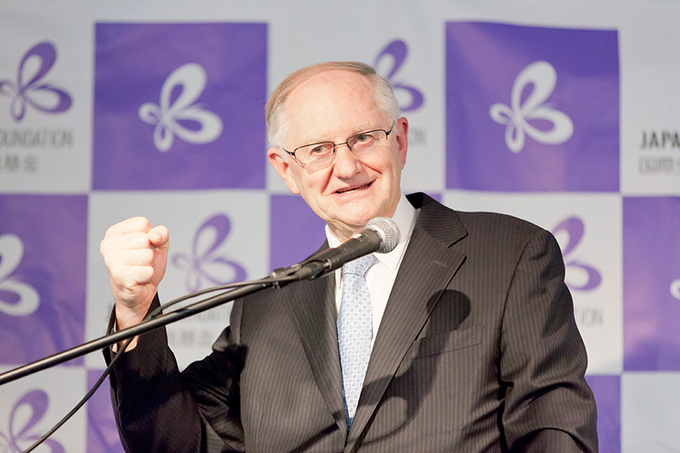
The 2014 presentation ceremony for The Japan Foundation Awards: Commemorative Lecture
Drysdale first arrived in Japan exactly 50 years ago from now, to study at Hitotsubashi University. He has been researching Japan-Australia relations and cooperation between the two countries in the Asia-Pacific. In his lecture, Drysdale began by explaining that in the course of that research he interacted for many years with researchers, intellectuals, government officials and company representatives from not only Japan but a large number of countries, and enjoyed cooperative relationships with many people. He then looked back on the path of his 50 years of research up to now, and in particular gave a comprehensive explanation of the spreading and deepening of economic growth in Asia, which has witnessed major changes over the last 20 years. He also provided a general overview of future developments in regional frameworks in Asia from a scholarly perspective, including the Trans-Pacific Partnership (TPP) and the Regional Comprehensive Economic Partnership (RCEP).
At the end of his lecture, Drysdale expressed his feelings of joy at being able to contribute to the development of the region via research spanning half a century, and wound up by saying that he hopes "regional ties deepen further over the next 50 years."
Currently, Drysdale continues to energetically fly around the world and conduct research. His lecture received massive applause from the audience hopeful that steady progress will be made with research in the future.
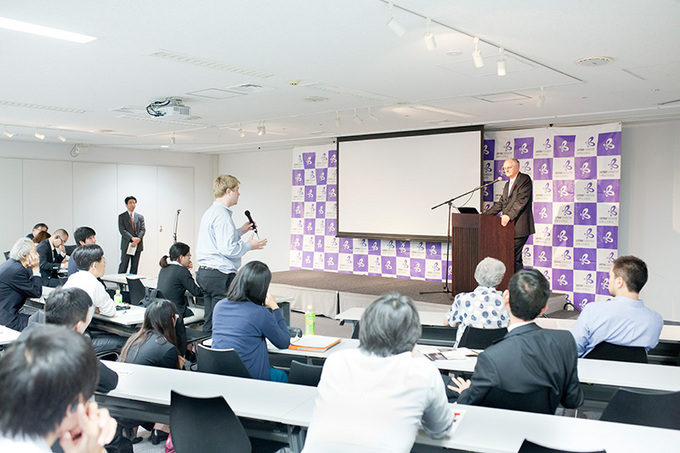
The 2014 presentation ceremony for The Japan Foundation Awards: Commemorative Lecture
※The article is a summary of the Commemorative Lecture, held at The Japan Foundation JFIC Hall "Sakura" on October 10, 2014, written by the editorial department.
(The photos of the Commemorative Lecture were taken by Kenichi Aikawa)
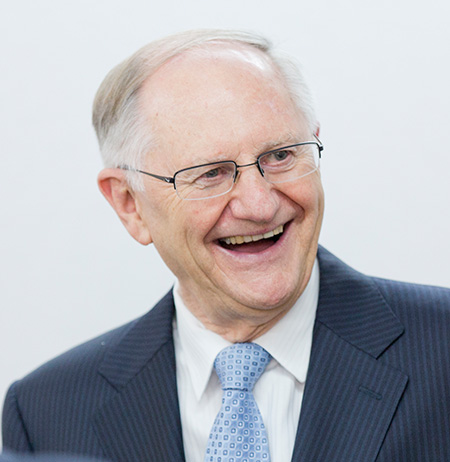 Peter Drysdale
Peter Drysdale
Peter Drysdale (born October 24, 1938) is Emeritus Professor of Economics at Australian National University (ANU), where he received his Ph.D. He concurrently serves as Head of the East Asian Bureau of Economic Research and Editor of the East Asia Forum. In 1980, he founded the Australia-Japan Research Centre with the cooperation of Australian and Japanese public and private sectors. He is known worldwide for his policy research on the East Asian and Japanese economies, and his research emphasizing economic cooperation in the Asia-Pacific region played a significant role in the establishment of Asia-Pacific Cooperation (APEC). His publication International Economic Pluralism: Economic Policy in East Asia and the Pacific (the English edition: Allen & Unwin and Columbia University, 1988; the Japanese edition: Mainichi Communications, 1991) won the Asia-Pacific Award (hosted by the Asian Affairs Research Council and Mainichi Newspapers) in 1989. He became a fellow of the Academy of the Social Sciences in Australia (ASSA) in 1998, and received the Order of the Rising Sun from the Government of Japan in 2001.
Back Issues
- 2019.8. 6 Unraveling the Maker…
- 2018.8.30 Japanese Photography…
- 2017.6.19 Speaking of Soseki 1…
- 2017.4.12 Singing the Twilight…
- 2016.11. 1 Poetry? In Postwar J…
- 2016.7.29 The New Generation o…
- 2016.4.14 Pondering "Revitaliz…
- 2016.1.25 The Style of East As…
- 2015.9.30 Anime as (Particular…
- 2015.9. 1 The Return of a Chin…

